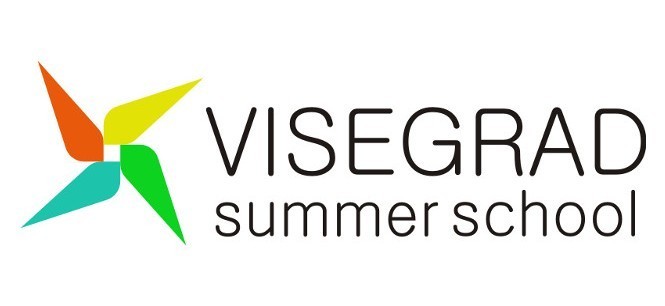
The 12th Visegrad Summer School is underway. Over 380 students, PhD students, young teachers and journalists from the four Visegrad Group countries and other Central and Eastern European states have sent their applications this year. The 12th season of the Visegrad Summer School will take place between 30 June and 13 July. It will be attended by almost 50 participants from 16 countries: Czech Republic, Poland, Slovakia, Hungary, Armenia, Belarus, Bulgaria, Georgia, Kirgizstan, Kosovo, Lithuania, Moldova, Russia, Romania, Serbia and Ukraine.
Among the experts invited to this year’s event there are the distinguished Czech historian, Petr Roubal; Karla Wursterová, Director of the Visegrad Fund; Magdaléna Vášáryová, Member of the Slovakian Parliament; Jean-Pierre Deru, culture management consultant; Zuzana Husárová, Slovakian writer and cultural theorist; Anna Lengyel, film director and social activist; Aleksander Kaczorowski, translator of Czech literature, and others. Some of the debates, lectures and meetings will be open to the general public.
The opening lecture, entitled The Age of Indifference, will be given by Prof. Josep Ramoneda, the founder of the Barcelona Centre for Contemporary Culture (Centre de Cultura Contemporània de Barcelona). As is traditional a debate will be held with the participation of Ambassadors and a representative of Poland’s Ministry of Foreign Affairs – this time the discussion will be devoted to the “human dimension of the Visegrad idea”. Some of the classes will focus on the social and political problems of Central and Eastern Europe, such as energy safety, economic cooperation, prospects, priorities and the promotion of the Visegrad Group. Controversial topics and questions, such as “The place of small countries in world politics”, ‘Where is Central Europe?” and “Are we all the prisoners of the past?” are designed to stimulate discussion on the heredity, the past and current relations. The programme will also include some of the important global issues regarding, for example, the cultural revolution in the Arab countries or role of media in political transformation of a state.
The section devoted to culture envisages the presentation of social and artistic projects by the Hungarian theatre PanoDrama, Polish-Slovakian debate on the new media literature and a nostalgic studio visit devoted to multicultural Galicia. Anyone interested in some of the most engaging documentaries and animations from our region created in the last few years is invited to attend the Visegrad Film Marathon, which will take place on 10 July.
The Visegrad Summer School is a two-week cycle of training for students, PhD students, young teachers and journalists from the four countries of the Visegrad Group and other Central and Eastern European states. The programme has been implemented annually since 2002, and is aimed at disposing of mutual stereotypes, and building friendly networks and international contacts. All events accompanying the School will take place at Villa Decius in Kraków, which for two weeks will turn into a special international forum of young people, for whom these meetings become an opportunity for expanding their knowledge of politics, economy, culture, social sciences and international relations, and for gaining invaluable experience which can be helpful in their later professional life. The participants of the School become involved in the preparation of projects in international cooperation as they present the selected aspects of the tradition and contemporary culture of their own countries. Debates with the distinguished guests from the world of politics and economy allow these young people to evaluate various phenomena more objectively as they get to know the motivations and views of others. The project has been awarded the distinction of the International Visegrad Award, established by the ministers of culture from Poland, Czech Republic, Slovakia and Hungary.












